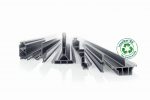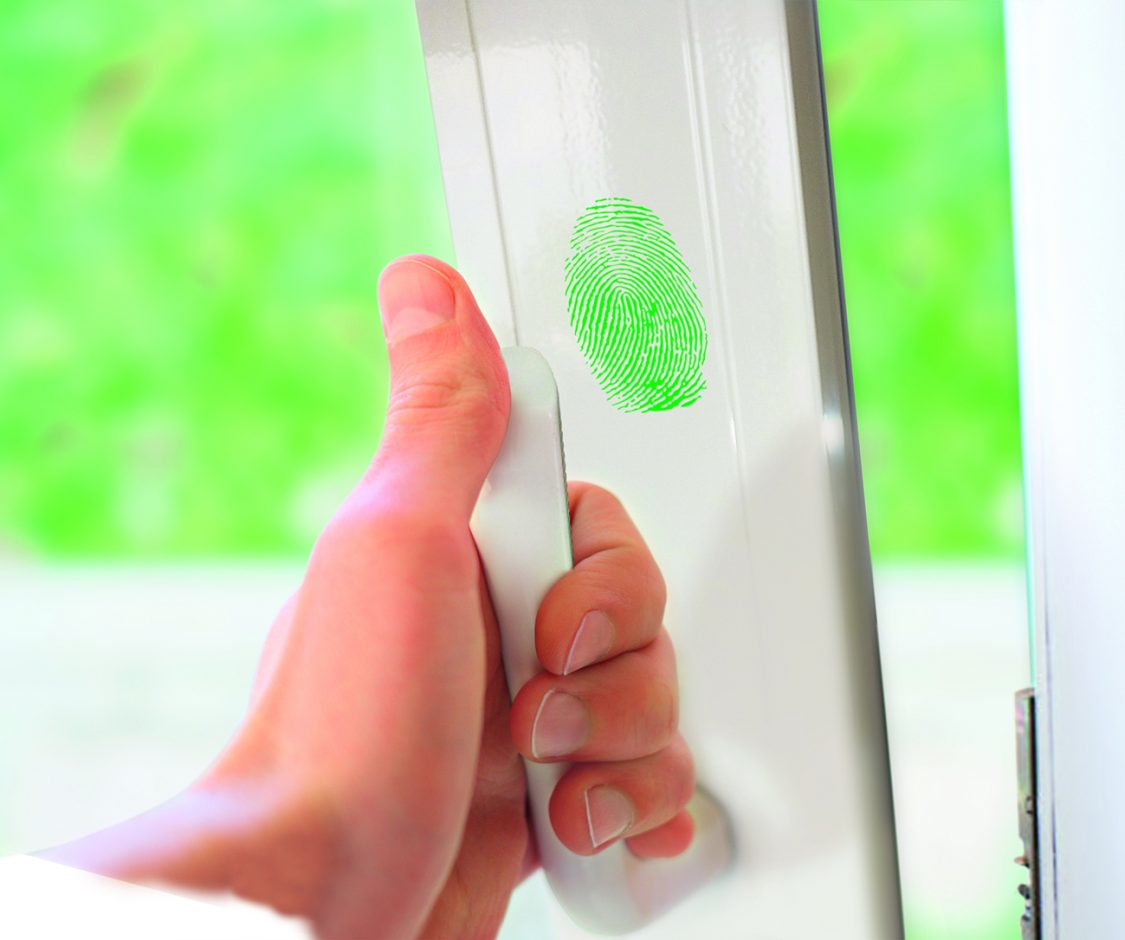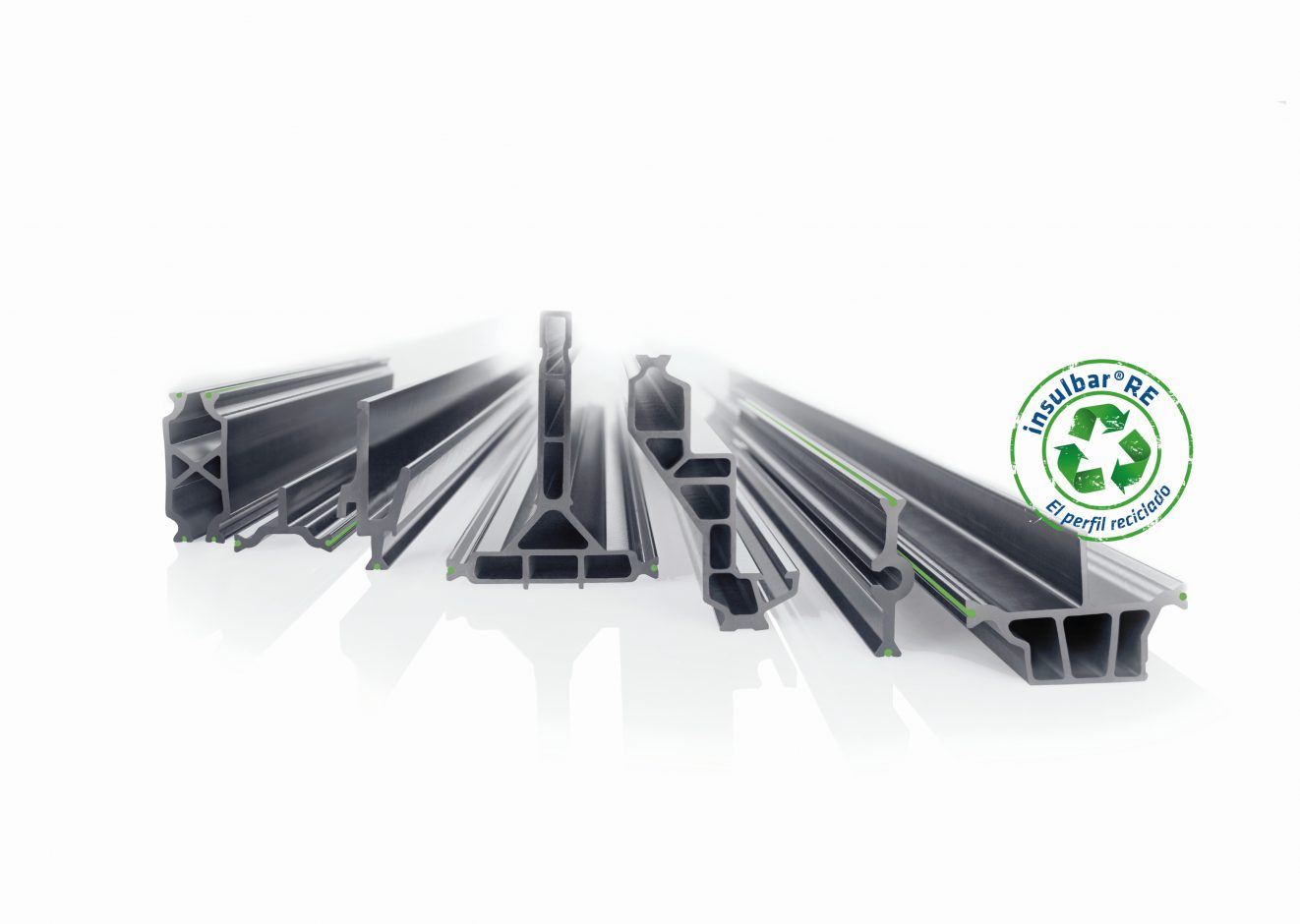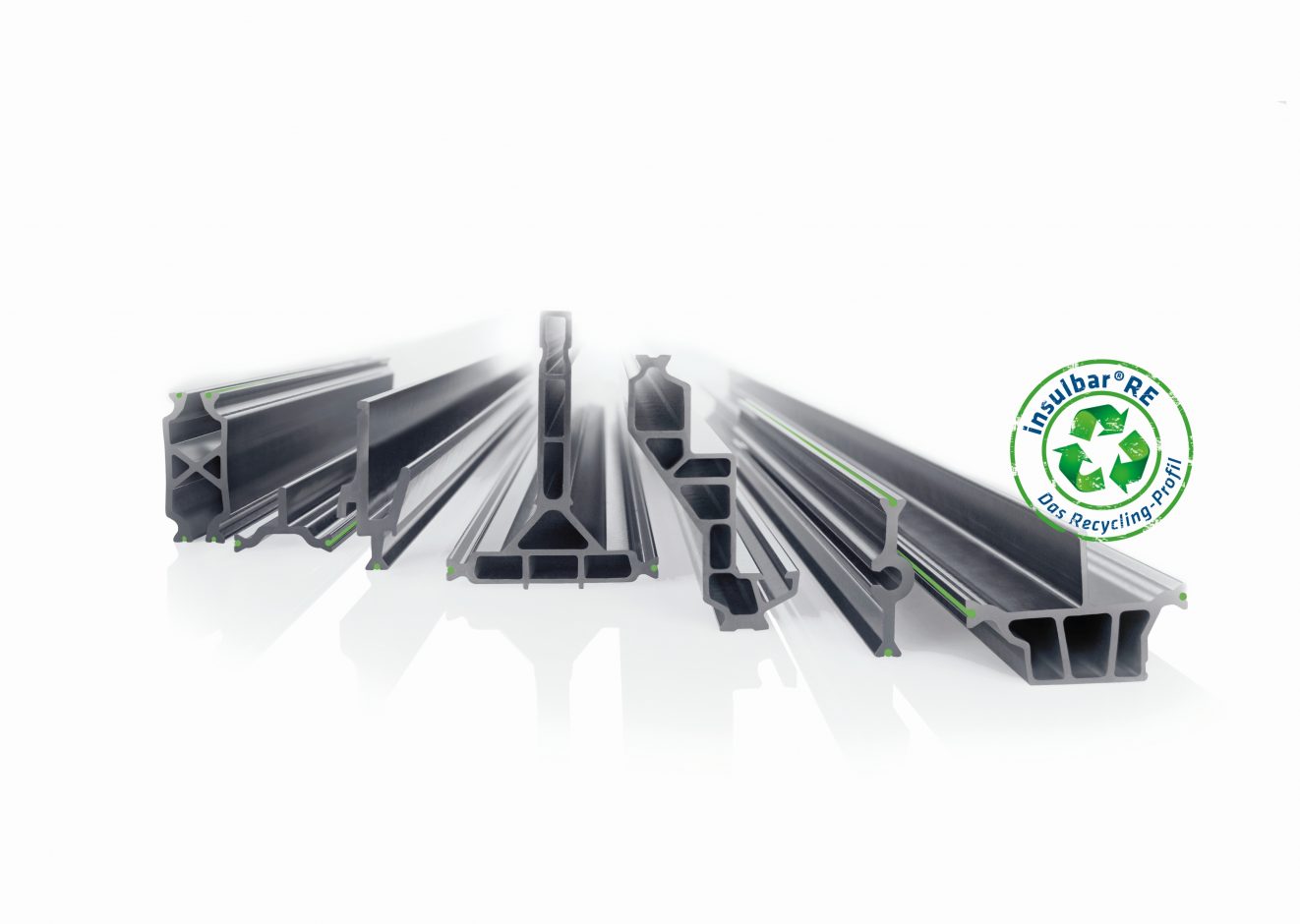With its latest development, the insulbar® RE insulating profile, Ensinger has taken its commitment to the planet another step further: by saving even more energy and precious resources right from the manufacturing stage. insulbar® RE is made of 100 % unmixed recycled polyamide. This base material is upgraded using a special process to lend it properties on a par with new material. This process extends the useful life of this high-grade material by another complete product life cycle, actively protecting the environment and helping to slow climate change – and has consequently been dubbed “upcycling”.
The process used by Ensinger to “upcycle” the polyamide recyclate is fully in compliance with the stringent insulbar® quality standards as set out by DIN ISO 9001 : 2008. The composition and properties of the material are exhaustively tested and documented at every processing stage. This ensures that insulbar® RE comes with the same high quality credentials users have come to expect from the classical insulbar® profiles: As well as being energy efficient, insulating profiles made of recyclate provide impressive mechanical properties, durability and functional reliability for years to come.
System manufacturers and processing companies using insulbar® RE insulating profiles made of recyclate in the window and facade construction business will be ideally equipped to meet not only present-day but also future building requirements and regulations. Already today, for instance, public buildings or large property investment projects constructed to high ecological standards are being conferred with quality seals in compliance with the DGNB, LEED or similar qualification systems. These are designed to classify the whole of the construction process and the building materials used in ecological, economic and functional terms.
Because the use of insulbar® RE can provide a key competitive edge when bidding for green construction projects, adopting a sustainable and environmentally responsible approach can bring economic rewards too.
For more information in the Internet, go to www.insulbar.de/en







